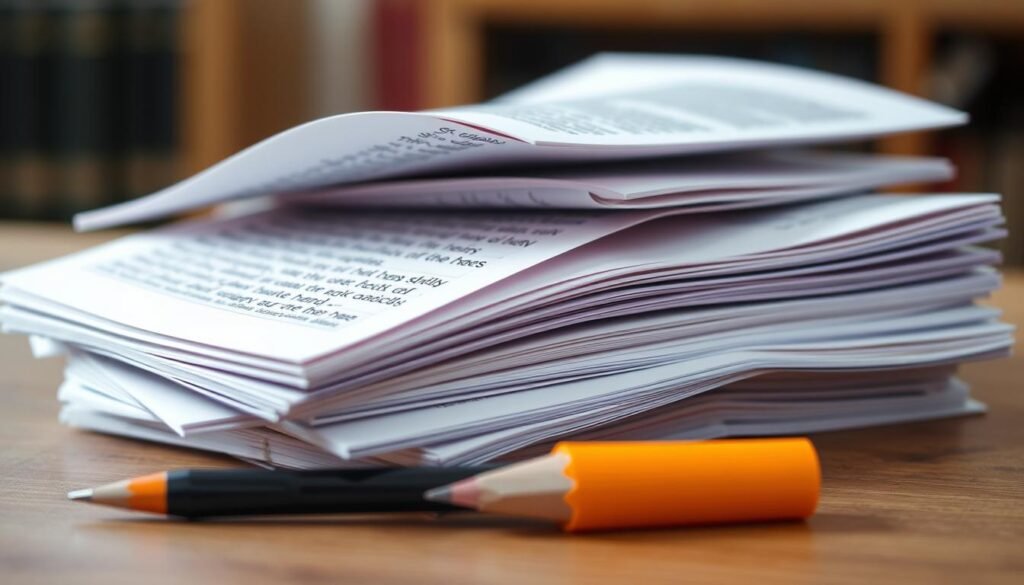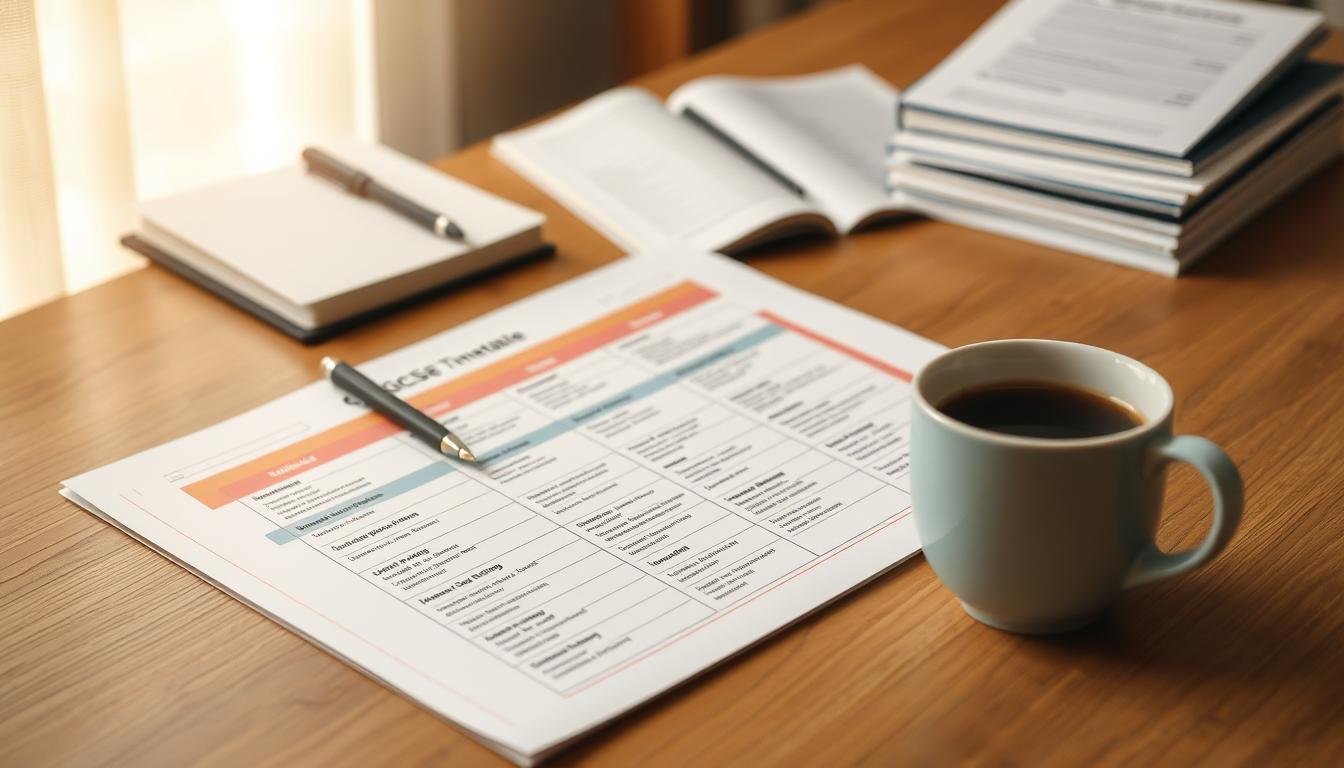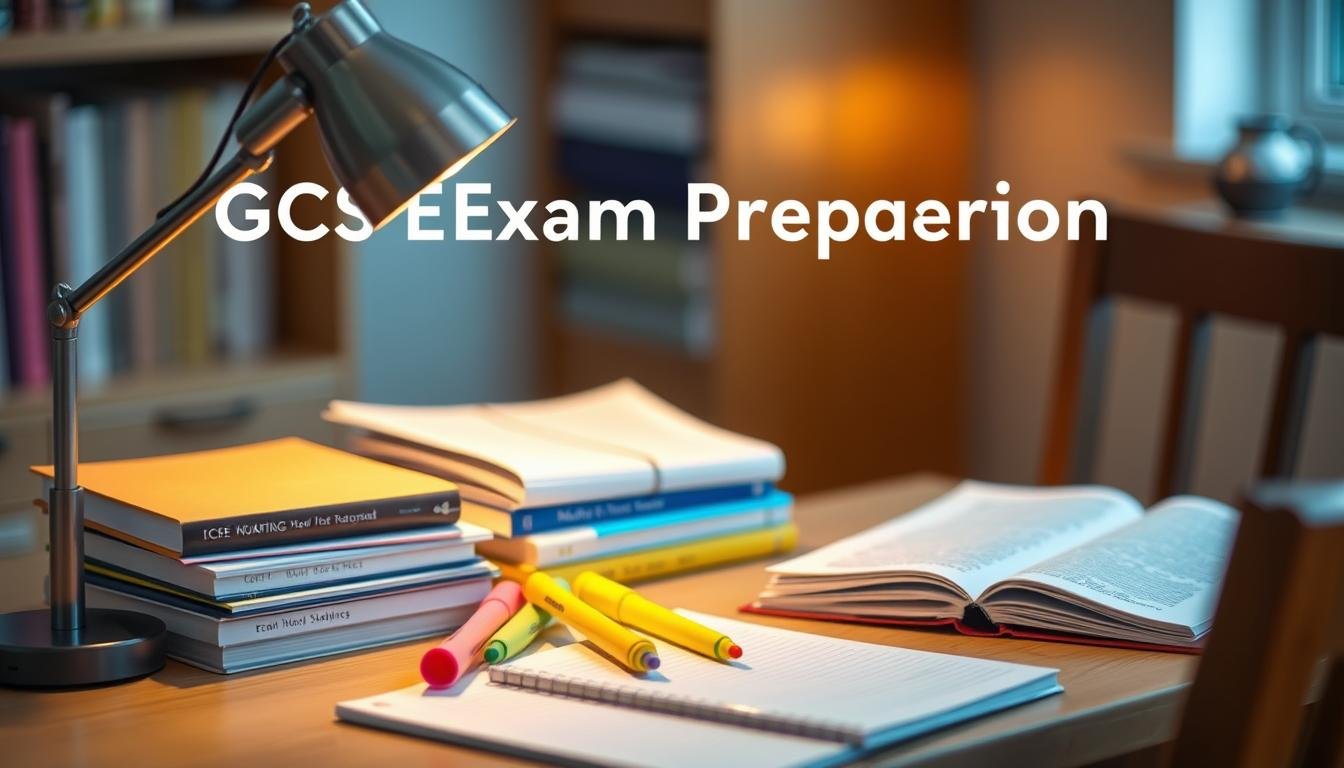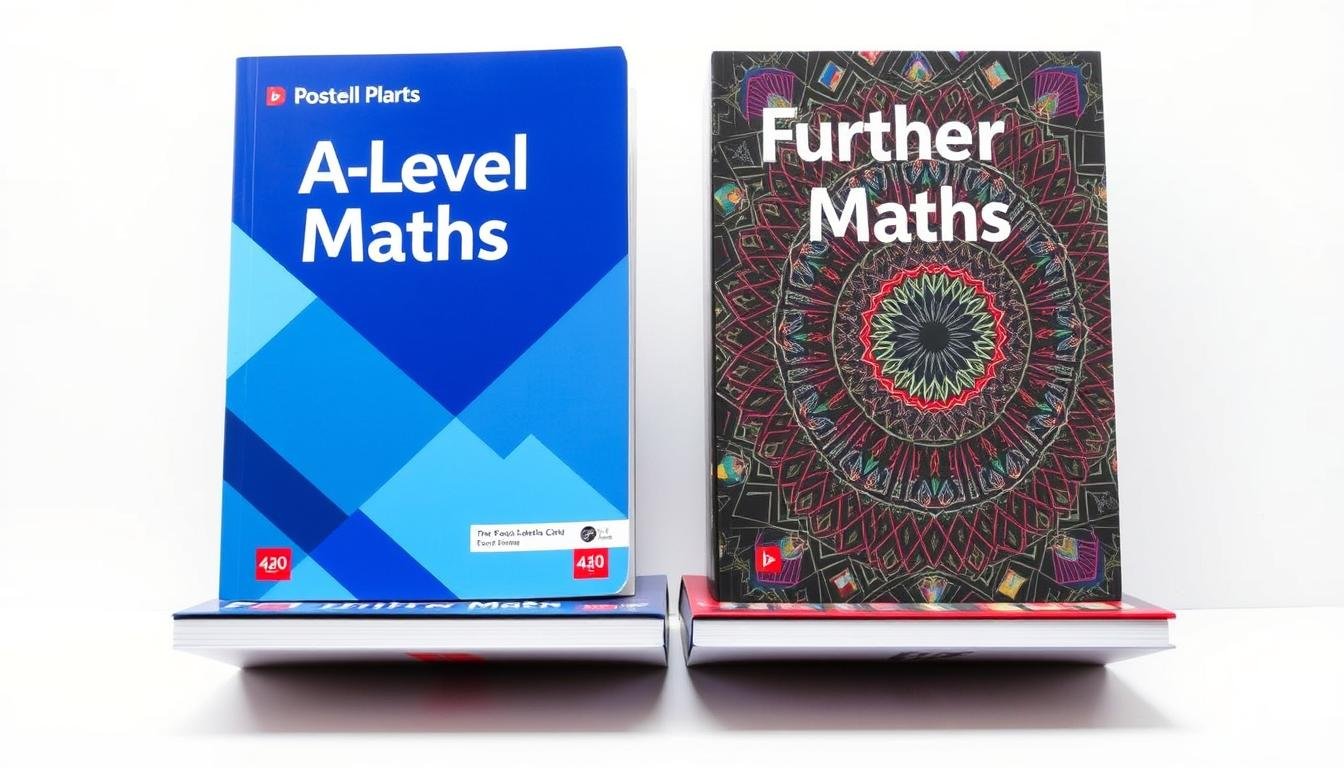Are you struggling to navigate the complexities of GCSE English Literature? Effective revision is key to achieving success in your exams.
Reliable revision notes are essential for understanding and retaining the vast amount of material covered in your course, from Shakespeare’s plays to 19th-century novels and modern texts.
By focusing on key areas such as exam code 8702 and utilizing study guides, you can streamline your revision process. Platforms like Save My Exams and Revisely offer comprehensive resources to aid in your preparation.
Key Takeaways
- Understand the importance of effective revision strategies for GCSE English Literature.
- Focus on key areas such as Shakespeare, 19th-century novels, and modern texts.
- Utilize reliable revision notes and study guides to streamline your revision.
- Leverage online resources like Save My Exams and Revisely for comprehensive support.
- Improve your exam prep with targeted revision notes.
Mastering Key Texts in the GCSE English Literature Curriculum
Mastering the key texts in your GCSE English Literature curriculum is the first step towards exam success. To achieve this, you need to be familiar with a range of texts, including Shakespeare plays, 19th-century novels, and modern texts. Effective revision involves understanding the characters, themes, and language used in these texts.
Approaching Shakespeare Plays
Shakespeare plays are a crucial part of the GCSE English Literature curriculum. To analyze these plays effectively, you need to understand the characters and their motivations.
Character Analysis Techniques
When analyzing characters, consider their traits, relationships, and development throughout the play. Look at how Shakespeare uses language to reveal character, such as through soliloquies and dialogue.
Understanding Shakespearean Language
Shakespeare’s language can be challenging, but understanding its nuances is key. Pay attention to metaphor, simile, and other literary devices that add depth to the text.
| Literary Device | Example | Effect |
|---|---|---|
| Metaphor | “Shall I compare thee to a summer’s day?” | Creates a vivid comparison, highlighting the beloved’s beauty |
| Simile | “How far that little candle throws his beams! So shines a good deed in a weary world.” | Illustrates the impact of a good deed, much like a candle lighting up a dark space |
Tackling 19th Century Novels
19th-century novels offer insights into the social and historical contexts of their time. Understanding these contexts is crucial for a deeper analysis.
Historical Context and Its Importance
The historical context of a novel can influence its themes, characters, and plot. Consider how the time period affects the narrative.
Analyzing Victorian Themes and Values
Victorian novels often explore themes related to morality, social class, and gender roles. Analyze how these themes are presented and critiqued in the text.
Interpreting Modern Texts and Drama
Modern texts and drama require an understanding of contemporary issues and how they are represented.
Character Development and Motivation
Character development is crucial in modern texts. Consider how characters evolve and what motivates their actions.
Social and Political Commentary
Many modern texts include commentary on social and political issues. Analyze how these commentaries are made and their significance.
Analyzing Poetry Collections and Anthologies
Poetry collections and anthologies demand a different set of analytical skills, focusing on poetic techniques and comparative analysis.
Poetic Techniques and Structure
Understanding poetic techniques such as imagery, symbolism, and structure is essential. Analyze how these elements contribute to the poem’s meaning.
Comparative Analysis Methods
When comparing poems, look at their themes, tones, and use of language. Consider how different poems address similar or different issues.
Creating Effective GCSE English Literature Revision Notes
To achieve top marks in your GCSE English Literature exams, it’s vital to create well-structured revision notes. Effective revision notes can help you organize your study materials, retain complex information, and quickly recall key points during the exam.
Designing Character Maps and Relationship Diagrams
Character maps and relationship diagrams are invaluable tools for understanding the complex interactions within a literary text. By visually mapping out characters and their relationships, you can better analyze the plot and character motivations.
Visual Organization Techniques
Using visual organization techniques, such as mind maps and flowcharts, can help you structure your revision notes in a clear and concise manner. These techniques enable you to visually connect different elements of the text, making it easier to review and recall information.
Connecting Character Motivations
Understanding character motivations is crucial for analyzing literary texts. By identifying and connecting character motivations, you can gain a deeper insight into the plot and themes of the text.
Developing Theme Tracking Systems
A theme tracking system allows you to monitor and analyze the development of themes throughout a literary text. This can be particularly useful for comparing and contrasting different texts.
Color-Coding for Theme Recognition
Color-coding is a simple yet effective method for recognizing and differentiating between various themes within a text. By assigning a specific color to each theme, you can quickly identify and reference relevant passages.
Cross-Text Theme Comparison
Comparing themes across different texts can provide valuable insights into the broader literary context. By identifying common themes and motifs, you can develop a more nuanced understanding of the literature.
Building Effective Quote Banks
Quote banks are collections of significant quotations from literary texts that can be used to support your arguments in exams. Building an effective quote bank requires careful selection and organization of relevant quotes.
Selection Criteria for Powerful Quotes
When selecting quotes for your quote bank, consider their relevance to key themes, their impact on the plot, and their potential to support your arguments.
Memorization Techniques for Quotations
To memorize quotations effectively, use techniques such as repetition, visualization, and association. These methods can help you commit key quotes to memory, making it easier to recall them during the exam.
Utilizing Flashcards and Mind Maps
Flashcards and mind maps are versatile tools that can be used to enhance your revision. Flashcards can help you memorize key terms and quotes, while mind maps can be used to visually organize information.
Digital vs. Physical Revision Tools
Both digital and physical revision tools have their advantages. Digital tools offer flexibility and accessibility, while physical tools can provide a more tactile learning experience.
Spaced Repetition Systems
Spaced repetition systems involve reviewing material at increasingly longer intervals to help solidify it in your long-term memory. This technique can be particularly effective when used with flashcards.
Analyzing Literary Techniques and Contextual Factors

Effective analysis of literary texts involves understanding both the literary techniques used by authors and the contextual factors that impact the narrative. To excel in your GCSE English Literature exams, you need to be proficient in identifying and interpreting these elements.
Identifying and Interpreting Literary Devices
Literary devices are techniques used by authors to convey meaning and create specific effects. Understanding these devices is crucial for a deeper analysis of the text.
Language Analysis Framework
A language analysis framework helps you systematically analyze the language used in a text. This involves examining the use of imagery, symbolism, and other literary devices to understand their impact on the narrative.
Effect on Reader Response
The way an author uses literary devices can significantly influence the reader’s response. By analyzing these devices, you can understand how the author manipulates the reader’s emotions and perceptions.
Connecting Texts to Historical Contexts
Understanding the historical context in which a text was written is vital for a comprehensive analysis. This involves considering the social, political, and cultural factors that influenced the author.
Biographical Information and Authorial Intent
An author’s biography and intentions can provide valuable insights into the text. By understanding the author’s background and purpose, you can better interpret the narrative.
Social and Political Influences
The social and political climate of the time can significantly impact a text. Analyzing these influences helps you understand the broader context and themes of the narrative.
Recognizing and Exploring Key Themes
Themes are the underlying messages or ideas explored in a text. Identifying and analyzing these themes is crucial for understanding the author’s purpose and the text’s significance.
Universal Themes Across Literature
Many literary works explore universal themes that are relevant across different cultures and time periods. Recognizing these themes can help you connect different texts and understand broader literary trends.
Text-Specific Thematic Analysis
Each text has its unique set of themes that require detailed analysis. By focusing on these themes, you can gain a deeper understanding of the text’s specific messages and significance.
Understanding Structure and Form
The structure and form of a literary text contribute significantly to its overall meaning. Analyzing these elements helps you understand how the author has crafted the narrative.
Narrative Techniques and Their Impact
Narrative techniques such as point of view, pacing, and narrative voice play a crucial role in shaping the reader’s experience. Understanding these techniques can enhance your analysis of the text.
Genre Conventions and Expectations
Different genres come with specific conventions and reader expectations. Analyzing how a text adheres to or subverts these conventions can provide insights into the author’s intentions and the text’s impact.
Developing Exam Strategies and Essay Writing Skills

To excel in your GCSE English Literature exams, it’s essential to master exam strategies and improve your essay writing skills. Effective preparation involves understanding the exam format, practicing with past papers, and developing a robust essay writing technique.
Crafting Powerful Essay Introductions and Conclusions
A well-structured essay begins with a clear introduction that sets the tone for your argument. Your introduction should include a thesis statement that outlines your main argument.
Thesis Statement Development
A strong thesis statement is crucial as it guides the reader through your essay. For example, when analyzing Macbeth, a thesis statement could be: “In Macbeth, Shakespeare explores the destructive nature of ambition through the protagonist’s descent into madness.”
Synthesizing Arguments Effectively
To synthesize arguments effectively, ensure that each paragraph contributes to your overall argument. Use textual evidence to support your points, and make sure to analyze the evidence rather than just presenting it.
Managing Time During Literature Exams
Effective time management is critical during GCSE English Literature exams. You should allocate your time based on the marks available for each question.
Planning and Outlining Techniques
Before starting your essay, take a few minutes to plan your response. Identify the key points you want to cover and outline the structure of your essay.
Strategic Question Selection
Read through the exam questions carefully and choose the ones that you are most confident in answering. Prioritize questions that are directly related to the texts you have studied.
Tackling Different Question Types
GCSE English Literature exams include a variety of question types, from character-based questions to theme and context questions.
Character-Based Questions
When answering character-based questions, focus on the character’s development throughout the text. Use quotes to support your analysis.
Theme and Context Questions
For theme and context questions, ensure that you understand the historical context of the text and how it relates to the themes explored.
Practicing with Past Papers and Mark Schemes
Practicing with past papers and reviewing mark schemes can significantly improve your exam performance.
Self-Assessment Techniques
After completing a practice essay, assess your work against the mark scheme. Identify areas for improvement and work on those areas.
Identifying Areas for Improvement
Use the mark scheme to identify common mistakes or areas where you lost marks. Focus on improving these areas in your subsequent practice sessions.
| Exam Strategy | Description | Benefits |
|---|---|---|
| Effective Time Management | Allocate time based on marks available | Reduces stress, ensures all questions are attempted |
| Planning and Outlining | Take a few minutes to plan your essay | Improves essay structure, ensures key points are covered |
| Practicing with Past Papers | Use past papers to practice under exam conditions | Improves familiarity with exam format, identifies areas for improvement |
Conclusion: Building Confidence for Your GCSE English Literature Exams
As you prepare for your GCSE English Literature exams, creating effective gcse literature notes is crucial. By mastering key texts, analyzing literary techniques, and developing exam strategies, you can feel more confident and prepared.
Revisely and Save My Exams offer valuable tips on building confidence for your exams. Utilize these resources to create comprehensive revision notes for english literature and english literature study guides. Focus on crafting well-structured notes that cover key texts, characters, themes, and literary devices.
By following the strategies outlined in this article, you can develop a robust study plan and improve your essay writing skills. Stay focused, manage your time effectively, and practice with past papers to boost your confidence. With thorough preparation and the right resources, you can achieve success in your GCSE English Literature exams.
FAQ
What are the most important texts to focus on for GCSE English Literature revision?
You should focus on Shakespeare plays, 19th-century novels, and modern texts, as these are key areas of the exam code 8702. Make sure you understand the main characters, themes, and literary devices used in these texts.
How can I effectively revise for GCSE English Literature?
To revise effectively, you should create detailed revision notes, including character maps, theme tracking systems, and quote banks. You can also use flashcards and mind maps to help you memorize key information.
What are some tips for analyzing Shakespeare plays?
When analyzing Shakespeare plays, pay attention to character development, language, and themes. You should also consider the historical context in which the play was written and how it relates to the plot and characters.
How can I improve my essay writing skills for GCSE English Literature?
To improve your essay writing skills, practice crafting powerful introductions and conclusions, and make sure you can manage your time effectively during the exam. You should also familiarize yourself with different question types and practice responding to them.
What is the best way to use past papers and mark schemes for revision?
You can use past papers and mark schemes to practice your exam technique, identify areas for improvement, and develop your self-assessment skills. Make sure you review the mark schemes carefully to understand what examiners are looking for in your answers.
How can I stay organized and manage my revision time effectively?
To stay organized, you can use visual organization techniques, such as color-coding and mind maps, to help you keep track of your revision notes. You should also create a revision schedule and stick to it to ensure you cover all the necessary material.
What are some effective ways to memorize quotations for GCSE English Literature?
You can use memorization techniques, such as repetition and association, to help you remember key quotations. You can also create flashcards or use online tools to help you practice recalling quotations.
How can I use contextual factors to improve my analysis of literary texts?
To use contextual factors effectively, you should consider the historical context in which the text was written, as well as the social and cultural context. You should also think about how the author’s biography and intentions may have influenced the text.





